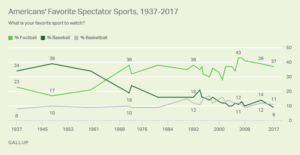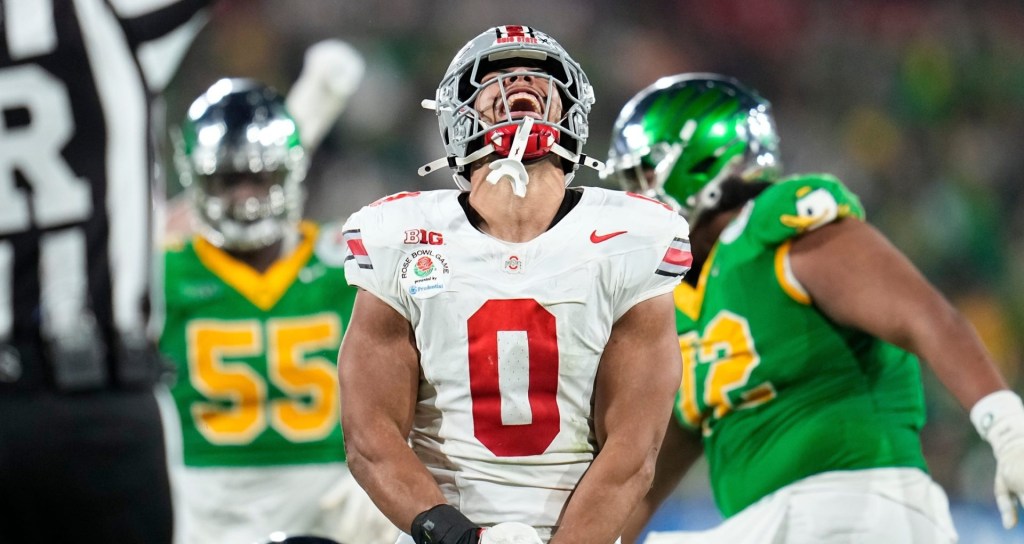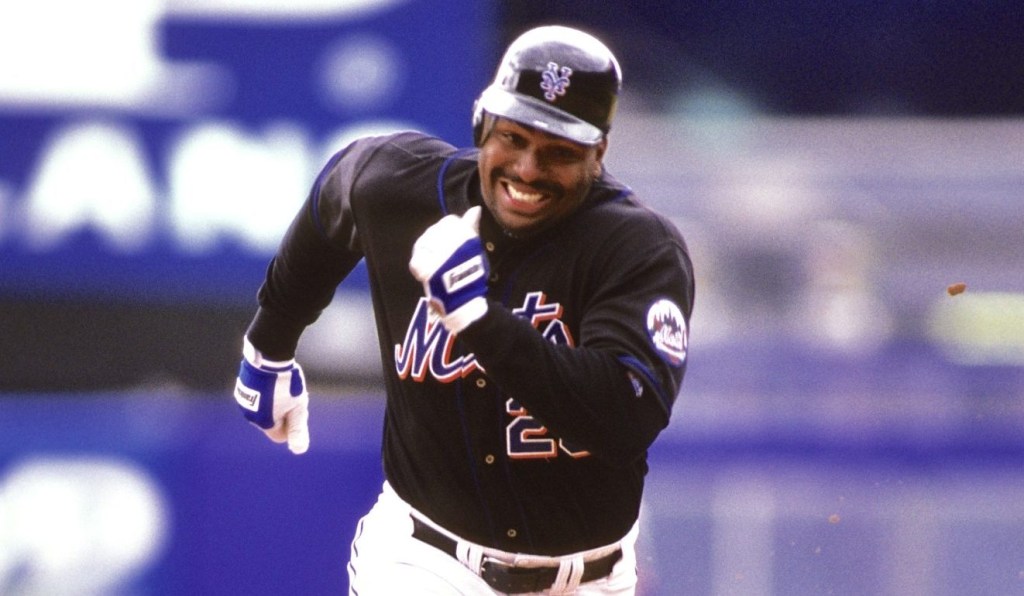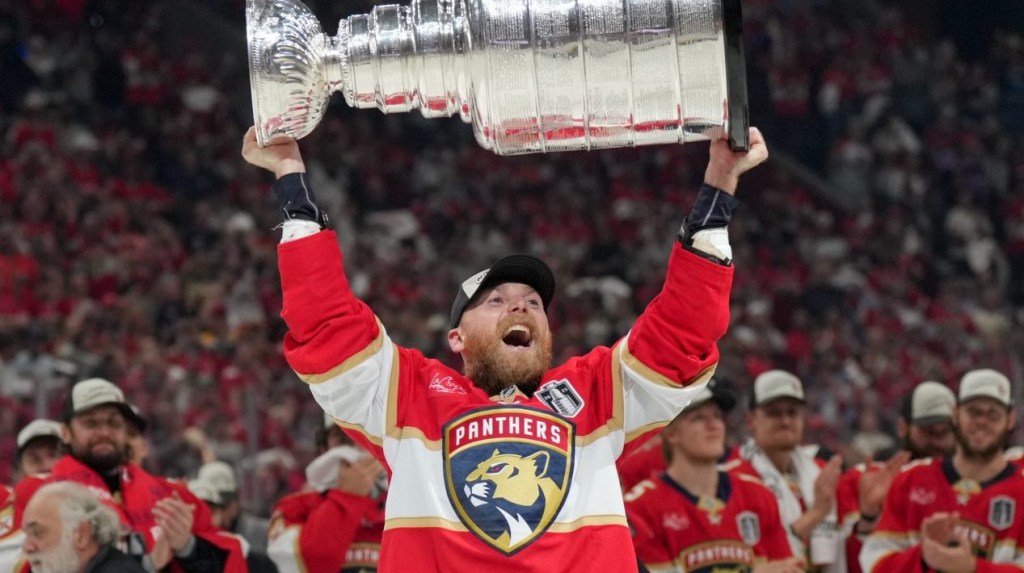Baseball: The Healthiest Dead Guy I Know
Most of my favorite weekly columns have some recurring names or theme…Peter King’s Monday Morning Quarterback; Matthew Berry’s Love/Hate; Rick Reilly’s “Life of Reilly,” back in the day…The title I kept toying with for my space here was “Diamond Notes.” Perfect fit! Clever, descriptive, references the two major topics covered (baseball and Benjamin’s…) and then I realized why it kept rattling around in my head.
Peter Gammons (and just about every fifth baseball blogger) already have that trope taken. Alas, swing and a miss! So for now…
It’s All Fun and Games
(‘Till Somebody Brings Up the Money)
Now, on to the writing…
In what seems like an annual routine this time of year, reports forecasting baseball’s demise are dominating the sport’s coverage in January. Earlier this month, Yahoo Finance cited a Gallup Poll indicating MLB’s declining popularity during their look at where the sports industry is headed in 2018. As Ben Rohrbach notes, for the first time in over a decade, the poll measuring fans’ favorite sport to watch showed basketball overtaking baseball as America’s second-favorite sport, with soccer not too far behind.

Credit: Yahoo Finance
At a mere 9 percent, baseball received its lowest level of support in the poll’s entire history, all of which was taken as an indication that the “Great American Past-Time” is well past it’s prime.
My, how quickly we forget the enthusiasm and excitement surrounding the MLB Playoffs the last two years. Fans flocked to the sport in October 2017, with the Astros-Dodgers World Series generating some of its highest ratings in years. Go back to just 2016, and you have the Cubs World Series victory celebration generating the 7th largest crowd in human history! With a turnout like that and it’s ability to generate over $9 billion in revenue in 2016, baseball is clearly still thriving- both as a sport and a business in the entertainment industry.
That being said, there have been a few interesting trends to emerge during the MLB Offseason this year. Moves made by the Miami Marlins, Tampa Bay Rays, and Pittsburgh Pirates trading away star players and faces of the franchise for budgetary reasons have raised almost philosophical questions for baseball fans today:
Is the MLB a sport or a business? What’s the responsibility of a team and it’s owner? Turning a profit? Providing entertainment? Putting a competitive team on the field…?
Both! All of the above! Which is what makes owning and operating a pro sports team such a nuanced activity. Baseball is a business. Franchises are run to turn a profit. They turn that profit by providing their core product: a good, productive, entertaining team for fans to cheer. Yet sometimes those objectives aren’t congruent.
There are fewer owners like George Steinbrenner of the New York Yankees and Mike Illitch of the Tigers emptying the war chest every year with the sole motive of winning, pushing teams to take a more deliberate, responsible approach to strategic roster building. Franchises are no longer mere vanity projects or hobbies with unlimited funding. They are designed to be thriving businesses built on fan passion.
With that shift, the MLB Hot Stove has become so cold this year it makes an E-Z Bake Oven seem industrial grade. Teams are acting more deliberately, player valuations are changing, and both sides are left feeling out the new landscape. As Sports Illustrated, ESPN, and namely Tyler Kepner have noted, “with analytics now entrenched in front offices…there is an increasingly long list of once-valued statistics and perceived skills that front offices don’t pay for anymore.”
Front offices have moved on, targeting new measures generated by Statcast underlying the game. Spin-rate, launch angle, hard-hit percentage…that’s what teams are using to evaluate today’s free agent; not the traditional RBIs, homers, and other intangibles they used to chase after. Things like leadership and experience that are unquantifiable have been replaced by concrete metrics and more analytical measures. (Interestingly, that seems to pertain to front office assessments of managers as well, with five rookie hires made that lack the experience that used to be a prerequisite for eligibility).
These moves are not based on collusion, nor are they callous franchise tear-downs a la the Cleveland Indians in the movie “Major League.” The developments are an offshoot of teams’ well-intentioned, concerted efforts to rebuild. It is ownership focusing on the moves necessary to sustain a thriving franchise. Fans should be pleased.
Yes, it may be frustrating- and in some cases heartbreaking- to watch an inferior lineup take the field as a face of the franchise leaves, but remember: the goal is not to lose simply because it costs less money; its team execs effectively managing their competing objectives. Front offices are acting deliberately to optimize winning with franchise longevity; building for long-term success in the future with moves that may generate unfortunate losing in the moment.
















